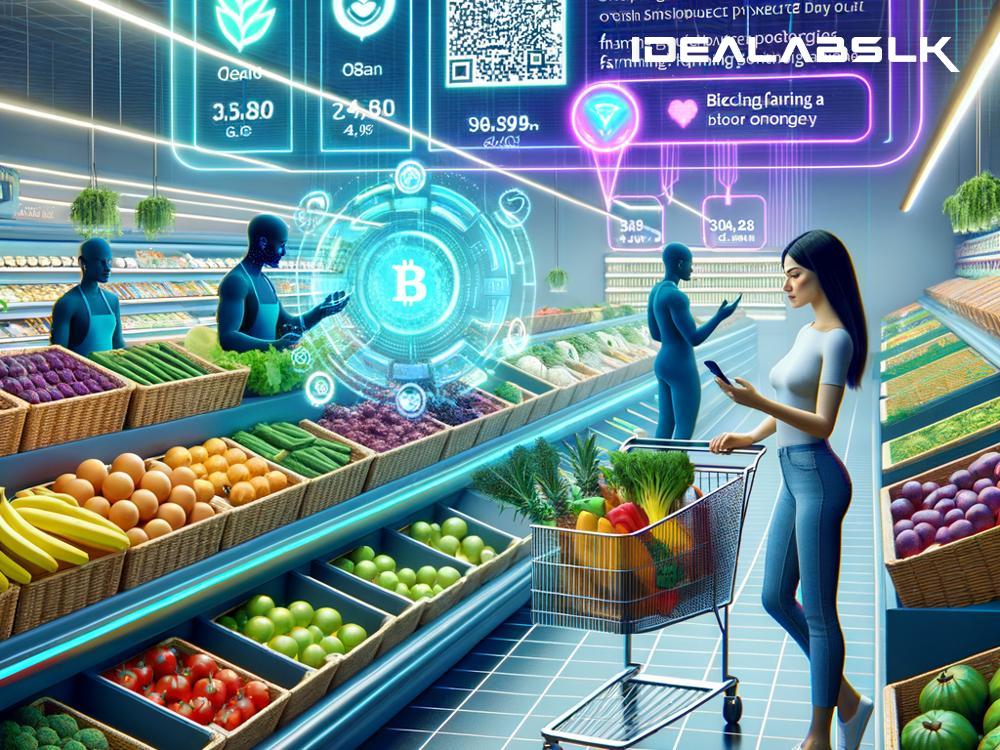Blockchain and AI: A Dynamic Duo Revolutionizing Organic Food Markets
In today's world, we hear a lot about organic food — food that is produced without the use of synthetic pesticides, artificial fertilizers, genetically modified organisms (GMOs), and other additives or chemicals. People are increasingly leaning towards organic food for its health benefits and minimal environmental impact. However, a significant challenge consumers face is ensuring the authenticity of organic products. This is where two cutting-edge technologies, Blockchain and Artificial Intelligence (AI), come into play, revolutionizing how we verify, track, and ensure the quality of organic foods.
Understanding Blockchain and AI
Before diving into their transformative roles, let's quickly understand what Blockchain and AI are. Blockchain is a digital ledger or record-keeping technology. Think of it as a chain of blocks, where each block contains data or transactions. Once a block enters the chain, it's very difficult to alter. This makes Blockchain incredibly secure and trustworthy.
On the other hand, Artificial Intelligence (AI) pertains to machines or systems designed to think, learn, and make decisions like humans. AI can analyze vast amounts of data quickly and with high accuracy, identifying patterns or anomalies that humans might miss.
The Dynamic Duo in the Organic Food Market
Now, how do these technologies transform the organic food sector? Let’s explore.
Traceability and Transparency with Blockchain
One of the biggest concerns for consumers buying organic products is whether they're genuinely organic. Blockchain technology offers a solution through enhanced traceability and transparency. Essentially, every step of a product's journey from the farm to the store can be recorded on a Blockchain. This includes where and how the food was grown, when it was harvested, processed, and the paths it took to reach the supermarket shelf.
For consumers, this means they can easily verify the organic authenticity of their purchases. By scanning a QR code, they could access detailed information on the Blockchain about the product's journey, assuring them of its organic credentials.
Enhanced Quality Control with AI
AI steps in to monitor and maintain the quality of organic products. Through sensors and data analytics, AI can predict crop yields, suggest optimal harvest times, and even detect diseases early. This information helps farmers make informed decisions, improving the overall quality of the produce.
Moreover, AI can analyze data from various points in the supply chain to ensure that conditions stay within specified organic-certification standards. If a product’s temperature rises above a certain point during transportation, AI systems can alert suppliers to take corrective action, safeguarding the product’s organic integrity.
Combating Fraud and Mislabeling
Both Blockchain and AI synergize to combat fraud and mislabeling in the organic market. Blockchain’s immutable records make it extremely difficult for unscrupulous suppliers to introduce non-organic products into the supply chain without detection. AI complements this by analyzing data trends and flagging inconsistencies that might indicate fraudulent activities, such as a sudden increase in organic yield from a particular farm without any justified reason.
Personalized Experiences with AI
Beyond ensuring authenticity and quality, AI can enhance the shopping experience for organic food consumers. Based on their purchasing history and preferences, AI can provide personalized recommendations to consumers. Whether it’s introducing them to new organic products or suggesting the best season for their favorite organic fruits, AI makes the shopping experience more engaging and tailored.
Conclusion
The fusion of Blockchain and AI technologies is setting a new benchmark in the organic food market. Not only do they address critical issues like traceability, transparency, and quality control, but they also pave the way for a future where consumers can enjoy a truly personalized and trustworthy organic shopping experience. This dynamic duo not only benefits consumers by ensuring the authenticity and quality of their food but also empowers farmers and suppliers by optimizing supply chains and enhancing productivity.
As we move forward, the integration of Blockchain and AI holds the promise of transforming the organic food sector into one that is not only sustainable and environmentally friendly but also thoroughly reliable and consumer-centered. Embracing these technologies could well be the key to fostering a healthier planet and population.

